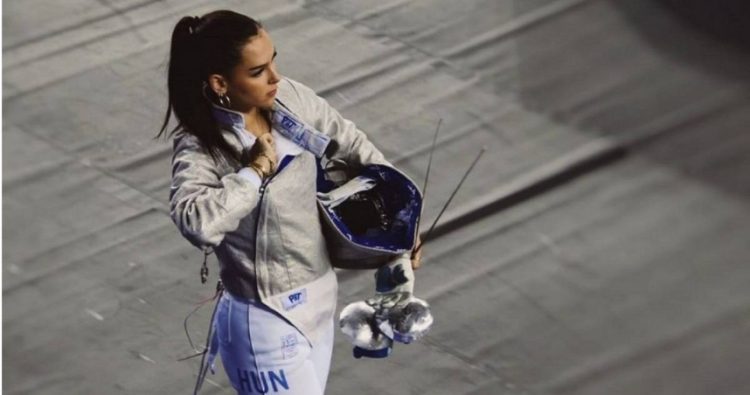Introduction
Fencing is a sport that requires not only physical prowess but also incredible mental resilience. While speed, precision, and technique dominate the physical aspects of the game, the psychological battle between fencers is often what determines the outcome of a match. The pressure to perform, the high stakes of competition, and the constant threat of making a mistake all contribute to the mental strain that fencers must endure. Top fencers have developed strategies to manage this stress, maintain focus, and stay calm under the most intense of circumstances.
This article will explore how elite fencers cope with the psychological demands of competition, discussing the mental techniques they use to manage pressure, maintain composure, and outthink their opponents. We will look at the role of mental toughness, visualization, mindfulness, and mental conditioning in helping fencers navigate the high-pressure environment of a fencing match.
I. The Mental Pressure of Fencing: A High-Stakes Sport
Fencing is often referred to as a “mental game” for good reason. A single point can swing the momentum of a match, and the psychological toll of a close contest can be immense. In addition to the usual stress of any competitive sport, fencers face unique challenges, such as the need for instantaneous decision-making, the pressure of performing in front of an audience, and the constant vigilance required to anticipate and respond to an opponent’s moves.
A. The Instantaneous Nature of Decision-Making
Fencing is characterized by fast-paced, split-second decisions. A successful parry or counter-attack may be the result of a fencer reacting to an opponent’s movement within milliseconds. The need to make the right call in such a short time frame means that mental clarity is essential.
- Speed of Thought vs. Speed of Action: Fencers must train their minds to process a constant flow of information, such as reading their opponent’s intentions and making lightning-fast decisions. Any lapse in concentration or hesitation can result in a point being lost.
B. Pressure of Performance
Like many other individual sports, fencing places immense pressure on the athlete. The outcome of a match is entirely on the shoulders of the fencer, and the presence of spectators, teammates, and coaches adds to the mental load. At the highest levels of competition, such as the Olympics or World Championships, the stakes are even higher, and the margin for error is smaller.
- Expectation to Win: Top fencers often enter competitions with high expectations, both from themselves and others. The weight of this expectation can create additional psychological pressure. Overcoming this pressure is often a key factor in determining success or failure.
II. Psychological Techniques for Coping with Pressure
To succeed at the highest levels of fencing, athletes must develop strategies to handle the psychological challenges of the sport. The ability to stay calm and focused in the heat of the moment can mean the difference between victory and defeat.
A. Mental Toughness: The Ability to Stay Calm Under Pressure
Mental toughness is one of the most important psychological attributes for any top fencer. It refers to the ability to maintain composure, focus, and confidence even when under intense pressure. Elite fencers possess a mental resilience that allows them to push through moments of doubt, fatigue, or frustration.
- Staying Composed After a Setback: In fencing, setbacks can happen quickly—an unexpected point against, a parry that misses, or a tactical mistake. The ability to quickly recover, refocus, and not let those mistakes affect the remainder of the match is crucial for success. Top fencers train themselves to accept mistakes without dwelling on them and to move on quickly.
- Embracing the Pressure: Rather than avoiding the pressure, mentally tough fencers learn to embrace it. Many champions view pressure as an opportunity to showcase their skills and rise to the challenge, rather than as an obstacle.
B. Visualization: Imagining Success Before It Happens
Visualization is a powerful psychological technique employed by many top athletes, and fencing is no exception. Visualization involves mentally rehearsing various scenarios in the mind’s eye, imagining successful attacks, successful parries, or winning moments before they even happen in the real match. This technique allows fencers to mentally prepare for any situation.
- Mental Rehearsal: Before a competition, top fencers often visualize themselves executing perfect techniques. They mentally rehearse their footwork, their attacks, and their defensive moves, often picturing themselves in the heat of battle, responding to different types of opponents. This mental preparation helps boost confidence and reduces anxiety before a match.
- Dealing with Pressure Situations: In addition to general practice, visualization can also help fencers mentally prepare for high-pressure situations. For instance, a fencer might visualize themselves being down by a point in the final seconds of a match and then successfully executing a comeback. This process helps them stay calm and ready when similar situations arise.
C. Mindfulness and Focus: Staying Present in the Moment
Mindfulness, the practice of staying present in the moment and focusing on the task at hand, is a crucial skill for top fencers. Fencing is a dynamic, fast-paced sport where distractions can easily take over. To stay at the top of their game, fencers must be able to shut out external distractions and focus solely on their movements, their opponent, and the flow of the match.
- Concentration in the Heat of Battle: In a fencing match, moments of intense concentration are required, especially when an opponent is launching a flurry of attacks or when the score is close. Top fencers have learned to block out distractions and maintain a laser-like focus on their actions. This includes ignoring the crowd, the referee’s decisions, and any other external factors.
- Breathing and Relaxation: Top fencers also use breathing exercises and relaxation techniques to stay grounded during tense moments. A simple technique such as focusing on deep, slow breaths can help reduce anxiety and restore calm during a match. This allows the fencer to avoid getting overly tense and making errors due to physical or mental strain.
III. The Psychological Battle Between Opponents
Fencing is not just a physical contest; it is also a mental one. Top-level fencers often engage in a psychological battle as much as a physical one. The ability to control the mental tempo of a match—dictating the pace, forcing the opponent to react rather than act, and playing mind games—can give a fencer a significant advantage.
A. Feints and Deception: Outthinking the Opponent
Fencers use feints—fake attacks intended to deceive their opponent—both as an offensive tactic and as a psychological strategy. A well-timed feint can cause an opponent to react prematurely, creating an opening for a real attack. The psychological element here is enormous, as a fencer must not only be technically skilled but also capable of manipulating their opponent’s thoughts and reactions.
- Reading the Opponent’s Mind: The best fencers are experts in reading their opponents. They observe subtle signs, such as how an opponent holds their weapon, their stance, and their general body language. By recognizing these signs, a fencer can anticipate their opponent’s next move and stay one step ahead mentally.
B. Confidence and Psychological Warfare
Fencers often use body language and small psychological tricks to build their own confidence and throw off their opponent’s mental game. From how they walk on the piste to how they carry themselves during breaks, everything can be used to create a psychological advantage.
- Projecting Confidence: Fencers who exude confidence tend to perform better. Even when they are unsure, projecting confidence—through posture, facial expressions, and overall demeanor—can help them feel more in control and may also cause the opponent to hesitate.
- Mind Games: Some fencers engage in subtle psychological warfare by attempting to get inside their opponent’s head. This can include things like taking a little longer between points, maintaining intense eye contact, or showing outward signs of frustration when they make a mistake—all aimed at disturbing the opponent’s mental focus.

IV. Mental Conditioning and Support
While mental toughness is largely a product of experience and natural talent, many top fencers also engage in mental conditioning to improve their psychological game. Mental conditioning can take many forms, from working with sports psychologists to engaging in mindfulness training and meditation.
A. Sports Psychologists and Mental Coaching
Many professional fencers work with sports psychologists who specialize in helping athletes improve their mental approach. These experts help athletes develop mental resilience, improve focus, and manage stress effectively.
- Mental Rehearsal and Stress Management: A sports psychologist can guide a fencer through techniques such as mental rehearsal, relaxation exercises, and mindfulness, helping them develop the psychological tools to perform at their best.
B. Peer Support and Team Dynamics
While fencing is an individual sport, many top fencers benefit from the support of teammates and coaches. The team dynamic can provide a sense of camaraderie and reassurance, which is particularly important when facing high-pressure situations.
- Building a Support System: A fencer’s coach and training partners often provide emotional support during competitions. Having a solid support system helps the athlete stay grounded and focused, especially when the stakes are high.
Conclusion
The mental game in fencing is just as important as the physical aspect of the sport. Top fencers develop and refine mental techniques such as visualization, mindfulness, mental toughness, and psychological strategies to handle pressure, stay calm, and gain an edge over their opponents. By mastering these psychological skills, fencers can not only improve
their performance on the piste but also unlock their true potential in competition. The ability to handle psychological pressure and maintain focus is a key component of success in fencing. By understanding the psychological challenges that come with the sport, we can better appreciate the mental strength required to become a champion in this fast-paced, high-stakes discipline.






























Discussion about this post